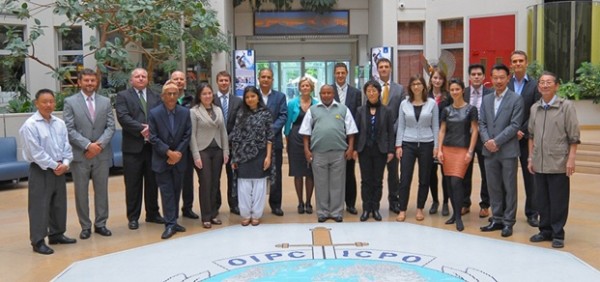Breaking
Operation EASTER launches for the 28th year
Bat Conservation Trust launch Halloween video to celebrate bats 🦇
Operation Badger re-launch for National Badger Day!
Craig Fellowes awarded MBE for services to wildlife
Operation EASTER ~ 27 years of stopping egg thieves
Man who abseiled down cliff to take peregrine falcon eggs jailed
Newport company fined for the demolition of Bat Roost
Cheshire man sentenced after admitting animal cruelty offences
2,114 seizures of endangered animals and timber in major international law enforcement operation
Natural England prosecutes developer for breaching Bat Mitigation Licence
Vale of Glamorgan man prosecuted for destroying valuable wildlife habitat
Wildlife detectives take part in new Forensics Training programme
PSNI investigate death of two white-tailed eagles
PSNI launch Operation SUBRISION to deter and detect rural and wildlife crime
Lewisham man convicted for illegally exporting ivory
Operation EASTER launched for 2023 - stopping egg thieves and egg collectors
Monmouthshire company fined for damaging an important Great Crested Newt habitat
Two Lincolnshire men sentenced under new hare coursing legislation
Hoard of suspected poached deer skulls and fox tails uncovered after drugs raid in Nottinghamshire
INTERPOL meeting aims to strengthen cooperation on environmental crime activities
INTERPOL meeting aims to strengthen cooperation on environmental crime activities

LYON, France – To enhance future collaboration with member countries and international partners in the area of environmental crime, INTERPOL held a familiarization visit at its General Secretariat headquarters in Lyon.
The four-day visit (13-16 May), organized by the Environmental Crime Programme, brought together 16 representatives from member countries and regional, international and non-governmental organizations to learn more about the global tools, services and operations of INTERPOL and discuss possibilities for cooperation on future projects and activities.
Participants were given the opportunity to view first-hand INTERPOL’s facilities, including a visit to the 24-hour Command and Coordination Centre and a presentation on the INTERPOL Global Complex for Innovation under development in Singapore. They also reviewed the tools and services offered by INTERPOL – such as the I-24/7 secure police communications system, notices, diffusions and databases – and examined the various crime areas in which INTERPOL offers its support to law enforcement worldwide. The delegates considered how they could best use these tools and services to combat environmental crimes, based on case studies of lessons learned during past international law enforcement actions.
By coming together to discuss common challenges, the participants were able to identify obstacles to overcome for successful future cooperation, including insufficient communication and lack of access to INTERPOL’s tools by frontline officers. The following set of recommendations was generated:
- Raise awareness of environmental crime within the law enforcement community
- Encourage multi-agency law enforcement efforts to address environmental crime through the INTERPOL National Environmental Security Task Force (NEST) initiative
- Extend the I-24/7 network to provide secure channels for exchange of intelligence and operational planning to national agencies, regional and international organizations
- Extend access to INTERPOL’s databases to enable recording and compilation of all relevant information in one place and ensure effective analysis
- Develop a standardized model for international law enforcement actions
- Coordinate international law enforcement actions with other enforcement agencies and inter-governmental actors
- Develop and maintain a standard set of protocols to define the role of NGOs and private entities in environmental law enforcement
- Establish a procedure for private entities to share relevant information with INTERPOL
Attending the meeting were representatives from China, Kenya, Nepal, Thailand, the United States of America and the United Kingdom as well as the Lusaka Agreement Task Force (LATF), the South Asia Wildlife Enforcement Network (SAWEN), the Association of South East Asian Nations’ Wildlife Enforcement Network (ASEAN-WEN), the United Nations Office on Drugs and Crime (UNODC), the World Customs Organization (WCO), the CITES Secretariat, the Freeland Foundation and the International Fund for Animal Welfare (IFAW).
More information about the projects and activities of the INTERPOL Environmental Crime Programme can be found on the INTERPOL website at: http://www.interpol.int/Crime-areas/Environmental-crime/Environmental-crime.
